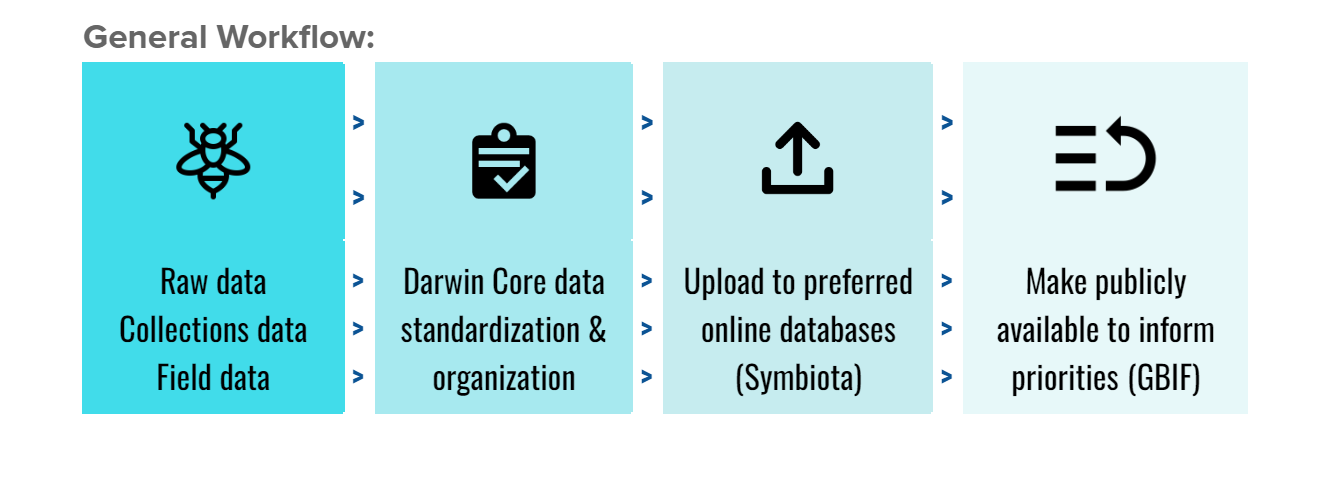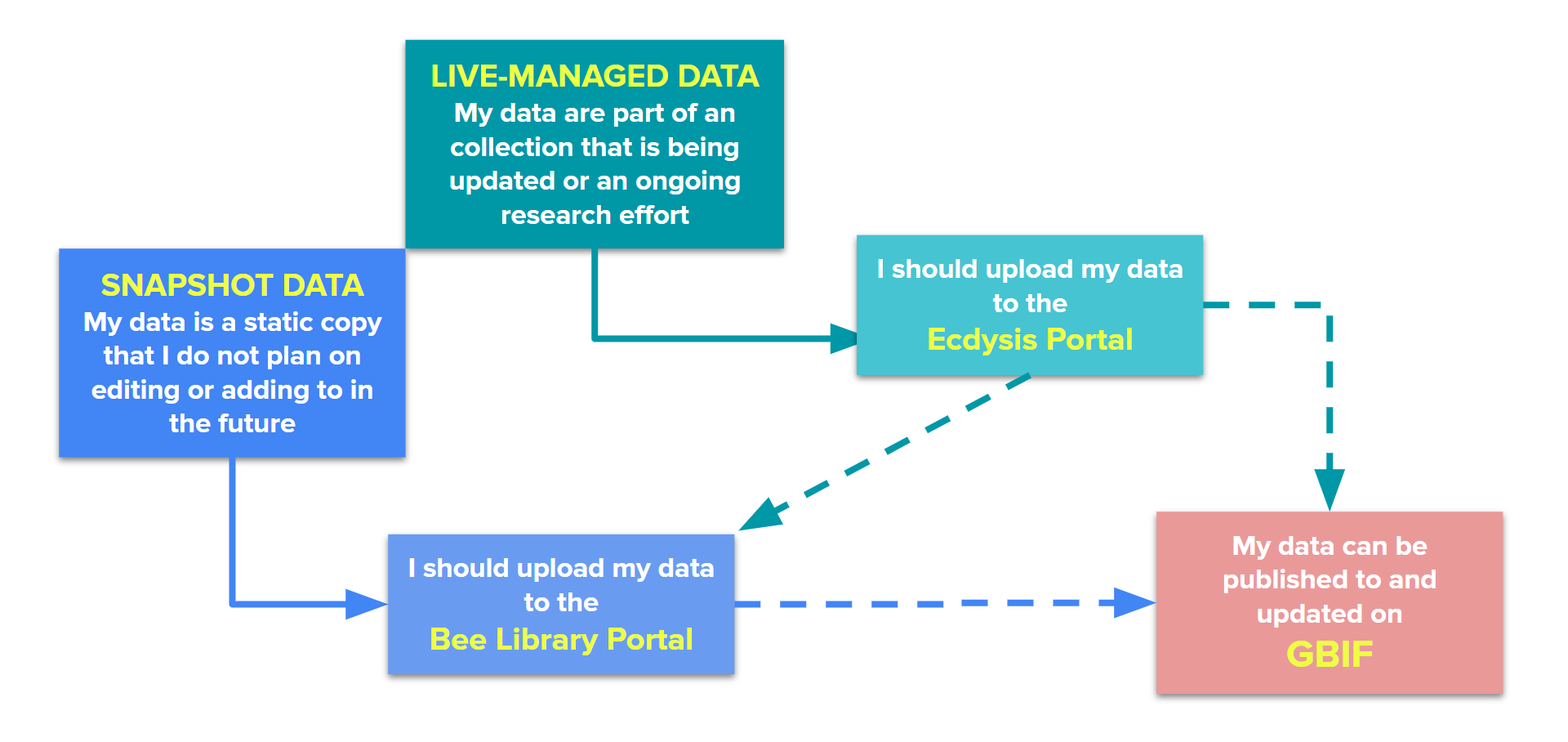Texas has a vibrant community of environmental professionals who work with native bees in various capacities, yet the region suffers from a lack of publicly available occurrence records for native bees.
These records, shared via platforms such as Symbiota and GBIF, are used by the research and conservation communities to inform bee conservation priorities across the region. As members of the Texas Native Bee RCN, we are committed to making relevant occurrence data from our work publicly available when possible.

Native Bee Occurrence Data Standardization and Sharing Guidelines
In 2024, the Texas Native Bee RCN collaboratively developed the following data standards and sharing guidelines with the Symbiota Support Hub to provide a step-by-step protocol that will help members of the native bee research community standardize their data and streamline the uploading process to online hosting sites and databases.
Native Bee Occurrence Data Standardization and Sharing Guidelines (Google Doc)
Native Bee Occurrence Data Standardization and Sharing Guidelines (PDF – Acrobat recommended)
RCN Preferred Data Standards and Sharing Platforms
In adherence with standards established by Biodiversity Information Standards (TDWG), the Texas Native Bee Research Coordination Network strongly aligns its data standards with the Darwin Core Standards that are widely by the biodiversity data-sharing community. These standards provide a set of universal terms that can be used to label your data so it is easier to upload and share, and these terms are to be used as column headers in your data sheets.
RCN-Curated Occurrence Data Templates
The following templates were collaboratively curated by the RCN to include specific data headers that are relevant to native bee research and conservation.
Texas Native Bee RCN Darwin Core Data Template (Annotated)
Texas Native Bee RCN Darwin Core Data Template (Blank)
Where should I upload my data?
One broad goal of the Texas Native Bee RCN is to ensure that researchers and conservationists are uploading occurrence data to the same hosting sites with the ultimate goal of this data being updated on GBIF to inform conservation work by State and Federal Agencies.

RCN Preferred Online Databases
While there are several online hosting sites available for biodiversity data-sharing, native bee researchers across Texas have not had a preferred universal hosting site that ensures their data makes it to GBIF. This makes it difficult to find comprehensive data on a given taxa and to identify data gaps.
The Texas Native Bee RCN worked with Symbiota to identify two preferred online data hosting sites that will automatically push data to GBIF once uploaded (please see the guidelines for specific instructions on this step).
The site you will host your data on will depend on the kind of data you have:
For data that will be “live-managed” (data are continuously/regularly updated and maintained within the portal’s user interface; any records you add to this portal will represent your canonical specimen records)
- Ecdysis (a Symbiota-based portal): Symbiota is an open-source software platform for managing and sharing biodiversity data through a network of institution, project, or taxa-specific “research portals”. Ecdysis is most relevant for vouchered specimen data that is being regularly updated (adding new records/editing existing records) within the portal, such as collections data, or collecting efforts/research that will be ongoing.
For “snapshot” data, or a static copy of your data (not actively managed data)
- The Bee Library (another Symbiota-based portal) is an online repository of bee image, trait, and specimen data. The Bee Library is most useful for “snapshot data” or occurrence records that come from datasets that are a static copy of your data, meaning you do not intend to actively manage these records within the portal, though you may occasionally share refreshed copies of your records by uploading a new spreadsheet.
Have questions?
If you are interested in sharing your data, but don’t know where to start, please feel free to reach out to the RCN Coordinator at megan.oconnell@utexas.edu or reach out directly to the Symbiota Support Hub at help@symbiota.org.
